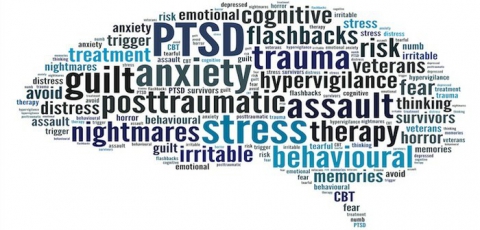What is trauma? American Psychological Association provides another definition of trauma. They said ” An emotional response of someone against the especial negative instance.” Adverse events such as significant injury by accident, violent attack, bullying, domestic violence, childhood neglect, etc.
Trauma can be a normal reaction to any horrifying instances; its effects can be so severe that they can negatively affect one’s ability to live everyday life and the function needed to survive even a day.
In such cases, a trauma patient needed special attention and treatment of that stress and dysfunction by such events. That needed help to restore the emotional well-being that leads to everyday life.
Leading Causes of Trauma:
One can face a trauma problem by severe negative instances that leave a lasting impact on our memory.
This event severely affects emotional and mental stability. There are many violent physical reasons for trauma, to lead one towards a trauma disease.
Causes of trauma can be one-time events, ongoing events, and ordinary events that may be overlooked. One-time causes can be an unexpected violent attack, especially in childhood, an accident or injury, incest, beating, many traumatic events that could shake our world.
On-going events in life can be a continuous life threat, for example, crime in your neighborhood, surgery, death of your loved ones, disappointing experience, humiliation, etc.
Trauma is not only associated with the presence of anyone at the place of the event. It is also possible to be in trauma if anyone experiences seeing an event from a distance. kids and those of young age children need proper examination after seeing or facing a traumatic event. It is essential to ensure their emotional well-being.
Symptoms of Trauma:
There are various trauma symptoms, and some of them are basic in nature, and you may look out for them. People that endured traumatic events may show some symptoms such as not responding to a conversation, shaken, and disoriented, nonresponsive to some stimuli.
We can separate them mainly into two types that are emotional symptoms and physical symptoms.
Emotional Symptoms:
One of the simple ways of determining trauma is the display of the emotional behavior of any person. Some emotional symptoms, such as anger, sadness, denial, and emotional outbursts, are common among trauma patients. It is difficult for friends and family members to face emotional direst and unexpected changes in a beloved friend or love member of the family.
It may be hard for you to help a loved one who keeps pushing you away. Sometimes it is hard for others to understand that emotional symptoms are due to a traumatic event and need your help to recover.
Physical Symptoms:
Some physical symptoms of trauma include lethargy, fatigue, fast heartbeat, low concentration, and paleness. A trauma victim may face panic attacks and anxiety and unable to control some circumstances.
Physical symptoms of trauma are severe as a physical injury or unexplained illness and are alarming.
With the help of a trauma caregiver or professional help can a trauma victim start to manage their symptomatic stress levels.
Trauma is an emotional response of someone against unexpected adverse events. Some events such as accident, injury, death of your loved one, rape in childhood, and any severe disease can be the reason for trauma.
Without proper help and relief of the trauma symptoms, a person can develop frequent physical symptoms and you will not be able to understand why. All this time it was is due to the trauma you suffered. It is so confusing to me the physical symptoms that can be created in our bodies.
